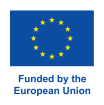Torsten Beweries

Address/Country
LIKAT Rostock, Albert-Einstein-Str. 29a, 18059 Rostock, Germany
Institution name and department
Leibniz Institute for Catalysis (LIKAT)
Position held
Group leader
Key words
- Homogeneous catalysis
- Organometallic chemistr
- Mechanistic studies
- Synthesis and degradation of APIs
Areas of Research/Expertise
We investigate different aspects of the coordination chemistry of early and late transition metal complexes in homogeneous catalysis. Starting from well-defined molecular systems, reaction optimisations and studies of the selectivity and kinetics of product formation are performed. Based on synthetic organometallic chemistry we aim for a fundamental understanding of structure-activity relationships. Research interests in our group range from the realization of unusual coordination environments in early transition metal complexes, activation of small molecules (e.g. H2O, H2, N2, CO2, olefins, alkynes, amine-boranes) to the development and catalytic evaluation of new pincer complexes of late transition metals and the mechanistic and kinetic investigation of homogenously catalysed reactions.
Our recent research efforts in the fields of catalytic (asymmetric) hydrogenation led to numerous successful cooperations with academic and industrial partners that were devoted to the selective synthesis of pharmaceutically relevant building blocks and APIs. Building on this expertise, we became interested in the application of mechanochemistry for monitoring the stability and degradation profiles of APIs. Within the interdisciplinary project PHARMSAF, funded by the Leibniz Association, we aim to develop a predictive solid-state tool for improved pharmaceuticals safety.
5 Most representative publications related to Mechanochemistry
- Urlaub, J.; Backer, L.; Krake, E.; Kaiser, R.; Baumann, W.; Handler, N.; Buschmann, H.; Bolm, C.; Beweries, T.; Holzgrabe, U. manuscript in preparation.
5 Most representative publications non-related to Mechanochemistry
- Hasche, P.; Haak, J.; Anke, F.; Kubis, C.; Baumann, W.; Drexler, H.-J.; Jiao, H.; Beweries, T., Dehydropolymerisation of methylamine borane using highly active rhodium(iii) bis(thiophosphinite) pincer complexes: catalytic and mechanistic insights. Catal. Sci. Technol. 2021, DOI: 10.1039/D1CY00124H.
DOI: 10.1039/d1cy00124h
https://pubs.rsc.org/en/content/articlelanding/2021/cy/d1cy00124h#!divAbstract - Reiß, F.; Reiß, M.; Bresien, J.; Spannenberg, A.; Jiao, H.; Baumann, W.; Arndt, P.; Beweries, T., 1-Titanacyclobuta-2,3-diene – an elusive four-membered cyclic allene. Chem. Sci. 2019, 10, 5319-5325.
DOI: 10.1039/c9sc01002e
https://pubs.rsc.org/en/content/articlelanding/2019/sc/c9sc01002e#!divAbstract - Anke, F.; Han, D.; Klahn, M.; Spannenberg, A.; Beweries, T., Formation of high-molecular weight polyaminoborane by Fe hydride catalysed dehydrocoupling of methylamine borane. Dalton Trans. 2017, 46, 6843-6847.
DOI: 10.1039/c7dt01487b
https://pubs.rsc.org/en/content/articlelanding/2017/dt/c7dt01487b#!divAbstract - Godemann, C.; Hollmann, D.; Kessler, M.; Jiao, H.; Spannenberg, A.; Brückner, A.; Beweries, T., A Model of a Closed Cycle of Water Splitting Using ansa-Titanocene(III/IV) Triflate Complexes. J. Am. Chem. Soc. 2015, 137, 16187-16195.
DOI: 10.1021/jacs.5b11365.
https://pubs.acs.org/doi/10.1021/jacs.5b11365 - Beweries, T.; Hansen, S.; Kessler, M.; Klahn, M.; Rosenthal, U., Catalytic dehydrogenation of dimethylamine borane by group 4 metallocene alkyne complexes and homoleptic amido compounds. Dalton Trans. 2011, 40, 7689–7692.
DOI: 10.1039/c1dt10366k
https://pubs.rsc.org/en/content/articlelanding/2011/dt/c1dt10366k#!divAbstract
Orcid ID/Google Scholar/Researchgate/Scopus profiles
Orcid ID: https://orcid.org/0000-0002-2416-8874
Google Scholar: https://scholar.google.de/citations?user=UqiIrSUAAAAJ&hl=de&oi=ao
Researchgate: -
Scopus profiles: -
Primary focus in mechanochemical research
- Investigation of degradation profiles of APIs
- Organometallic chemistry under mechanochemical conditions

